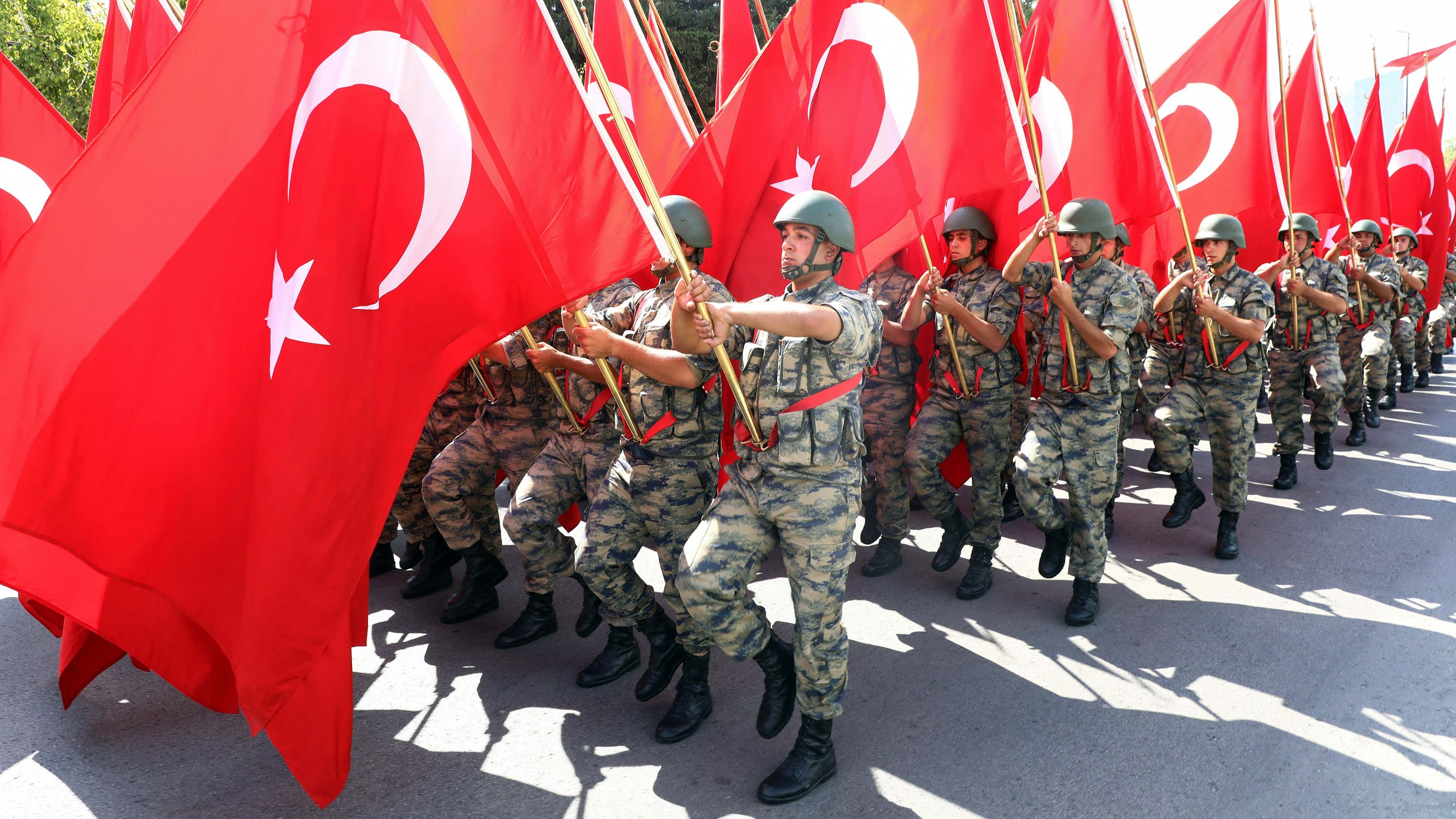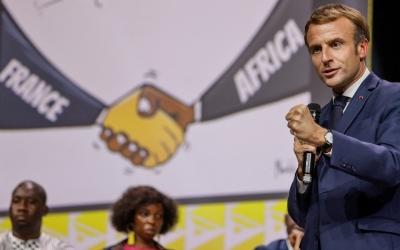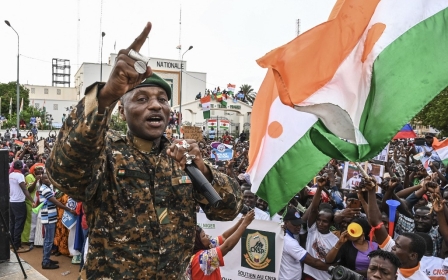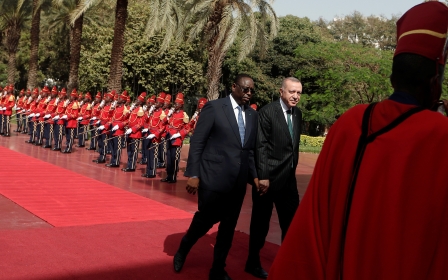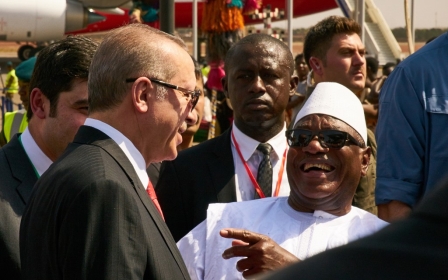Africa coups: As France's influence teeters in the Sahel, can Turkey take advantage?
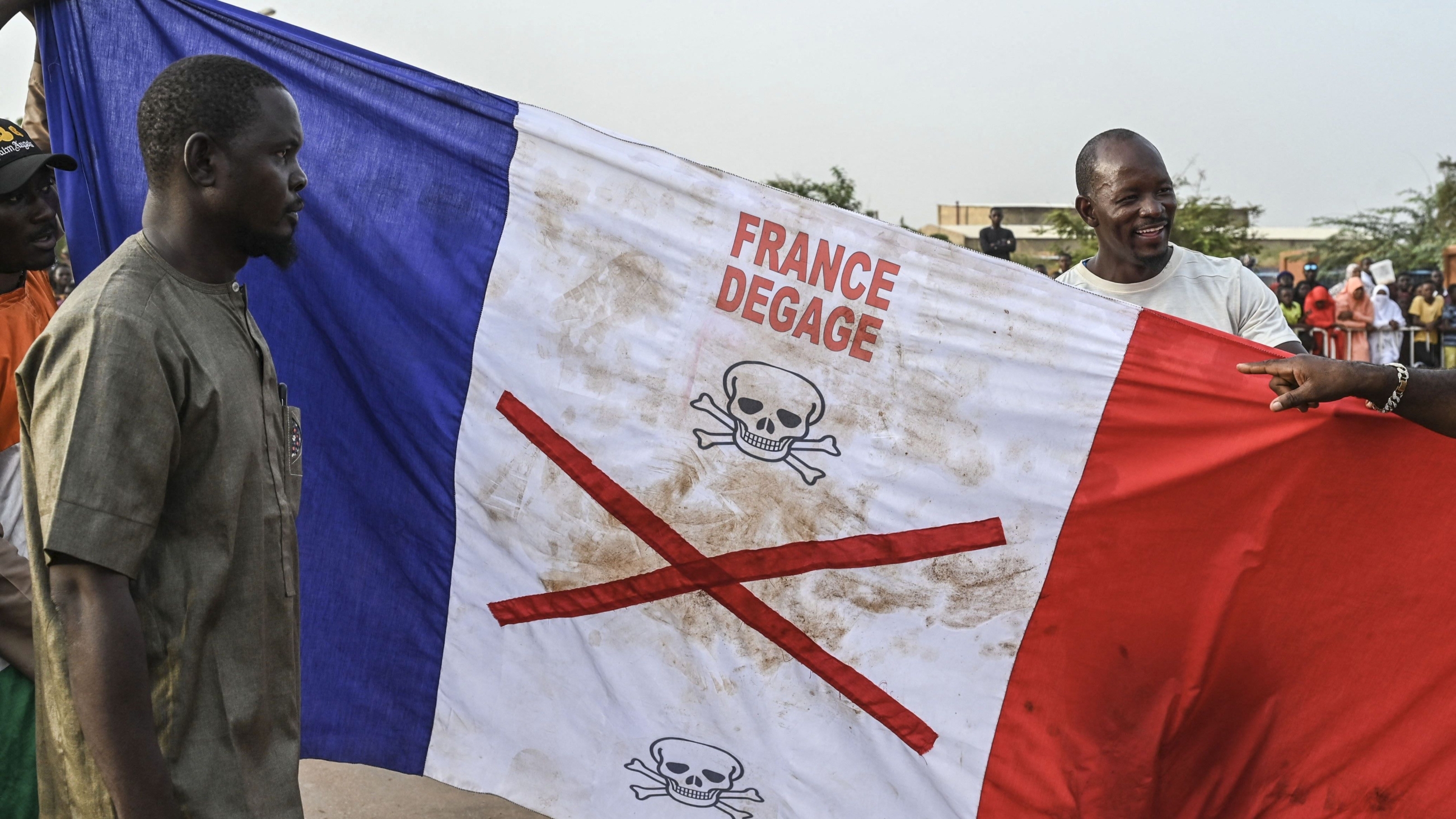
Africa’s Sahel region is in the throes of political turmoil after recent coups in Niger and Gabon and is poised for further unrest as the threat of foreign intervention looms.
Historically, the region has been dominated by its former colonial masters in Paris but in recent years the Russian mercenary organisation, the Wagner Group, has established a foothold.
That is not to mention close US security ties to several West African governments, Chinese investment diplomacy and politicking by Egypt and the UAE.
This international milieu has had the effect of diminishing France's influence in its old stronghold.
The country’s struggles in the Sahel are further compounded with domestic anti-French sentiment, often stoked after military takeovers.
Since 2020, there have been military coups or major political upheavals in Mali, Chad, Sudan, Guinea, Burkina Faso, Niger and, most recently, in Gabon last month.
In many of those cases, the new guard has utilised anti-French sentiment to consolidate their grip on power and garner public support.
Officials in the Turkish capital, Ankara, have long watched developments with interest and for a rising power beset with economic woes, the Sahel with its natural resources and infrastructure development needs justifies establishing a meaningful political presence there.
Turkey has strategically used anti-colonial discourse to its advantage, positioning itself as a nation that, unlike France, has a “clean past” in its dealings with Africa. President Recep Tayyip Erdogan has even described Turkey as an “Afro-Eurasian” country.
All this posturing has unsettled French policymakers, who have recent memories of Turkey muscling in on its interests in Libya.
In that country, Ankara argues that its military presence was instrumental in preventing the collapse of the internationally recognised Libyan government against a Russia-backed faction led by Khalifa Haftar.
France, for its part, has accused Turkey of violating a UN-imposed arms embargo to end the civil war in Libya.
Military and economic influence
Contrary to popular perception, Turkey has long wanted to establish closer ties with the African continent.
In 1998, before Erdogan’s AK Party came to power, the country announced its Africa Action Plan, which aimed to strengthen bilateral relations with states across the region.
These efforts took off with the Erdogan era and there is also a military dimension to the country’s presence in Africa.
Turkey has military bases in Libya and Somalia, and also provides military training to several other African states.
The 2008 Africa Opening and the Africa Partnership Plan of 2013 further entrenched this twin policy of economic investment and strengthening military ties.
During AK party rule, the number of Turkish embassies in Africa has grown from 12 in 2002 to 43 today.
Turkish Airlines has also expanded the number of destinations it serves in the continent to 61, while the Turkish Cooperation and Coordination Agency has opened 22 offices.
Ankara’s cultural influence is further consolidated by the Maarif Foundation, which has established 175 schools in 26 African countries. More than 6,000 African students also study in institutions inside Turkey on scholarships provided by Ankara.
But the lynchpin of Turkish influence campaigns in Africa is its military industrial complex.
Over the past two decades, Ankara has supplied armed drones, armoured vehicles, and weapons to local government to combat militant groups.
Still, military ties are a potential growth area for the Turks. In 2021, the total value of defence materials exported by Turkey amounted to less than $300m, accounting for just 0.5 percent of African military imports.
‘Frenemies’
Part of the explanation for that relatively small proportion of military sales to African states is that there are already well-established players there.
In the Sahel, France has long supported its local allies with weaponry and financial aid.
The establishment of new governments opposed to French influence could of course shift the balance and present new opportunities for Turkey.
But does Turkey have the infrastructure needed to fully capitalise on the openings and are the claims of animosity between Paris and Ankara overblown?
A source within the Turkish government, well acquainted with the African region, told Middle East Eye that France and Turkey remain allies within Nato, with both pledging support against the same militant groups and assisting the same governments.
A case in point is in Niger, where Turkey supported the now ousted Nigerien government with armed drones. It also signed an agreement in 2020 allowing Turkish companies to explore mines for minerals, including gold.
Turkey also donated $5m to the G5 Sahel Joint Force in 2018, before the coups, to support their efforts against militant groups.
That military bloc is comprised of Burkina Faso, Chad, Mali, Mauritania and Niger - four of which have experienced coups in recent years.
“If Turkey had adopted an anti-French position in the Sahel region, we would have seen a media campaign against France, targeting its crimes during the colonial era,” the government source said, reiterating that even in Libya the primary Turkish motivation was mitigating Russian, and not French, influence.
“It was Turkey who saved the Libyan government from falling into the hands of Russia in 2020,” he added, continuing: “Turkey would play a key role as a Nato member in the Sahel region too.”
Working within limitations
According to the source, even if Ankara had expansionist ambitions in Africa that would put it at odds with its French allies. For the time being at least, it lacks the necessary resources, local knowledge and weapons sales to be a game changer in the region.
Mehmet Ozkan, a professor at the National Defense University in Istanbul, said Turkey is not in a position to dictate developments in the Sahel according to its preferences.
He noted that Turkey's defence exports may not change the course of a war but can be valuable, especially against militant groups.
Currently, he said, Turkey is adopting a wait-and-see policy, primarily maintaining its presence using commercial expertise, particularly in the construction sector
Federico Donelli, an Italian academic at the University of Trieste and author of Turkey in Africa, believes that in recent decades, there have been opportunities for non-traditional players like Turkey in Africa.
In the Sahel, Ankara has taken a measured but persistent approach to expanding its footprint, with a focus on diplomatic and trade relations. Donelli argues that the Sahel region presents significant economic opportunities for Turkey. However, like the government source, he said that Turkish policy in the region would be in line with its position as a Nato member.
Understanding these limitations and diplomatic considerations will be crucial in determining whether Ankara succeeds in the Sahel, said Serhat Orakci, a researcher at the Humanitarian and Social Research Center (INSAMER).
“Specialisation and in-depth knowledge are required, especially in an unstable and insecure region.”
This article is available in French on Middle East Eye French edition.
Middle East Eye propose une couverture et une analyse indépendantes et incomparables du Moyen-Orient, de l’Afrique du Nord et d’autres régions du monde. Pour en savoir plus sur la reprise de ce contenu et les frais qui s’appliquent, veuillez remplir ce formulaire [en anglais]. Pour en savoir plus sur MEE, cliquez ici [en anglais].


